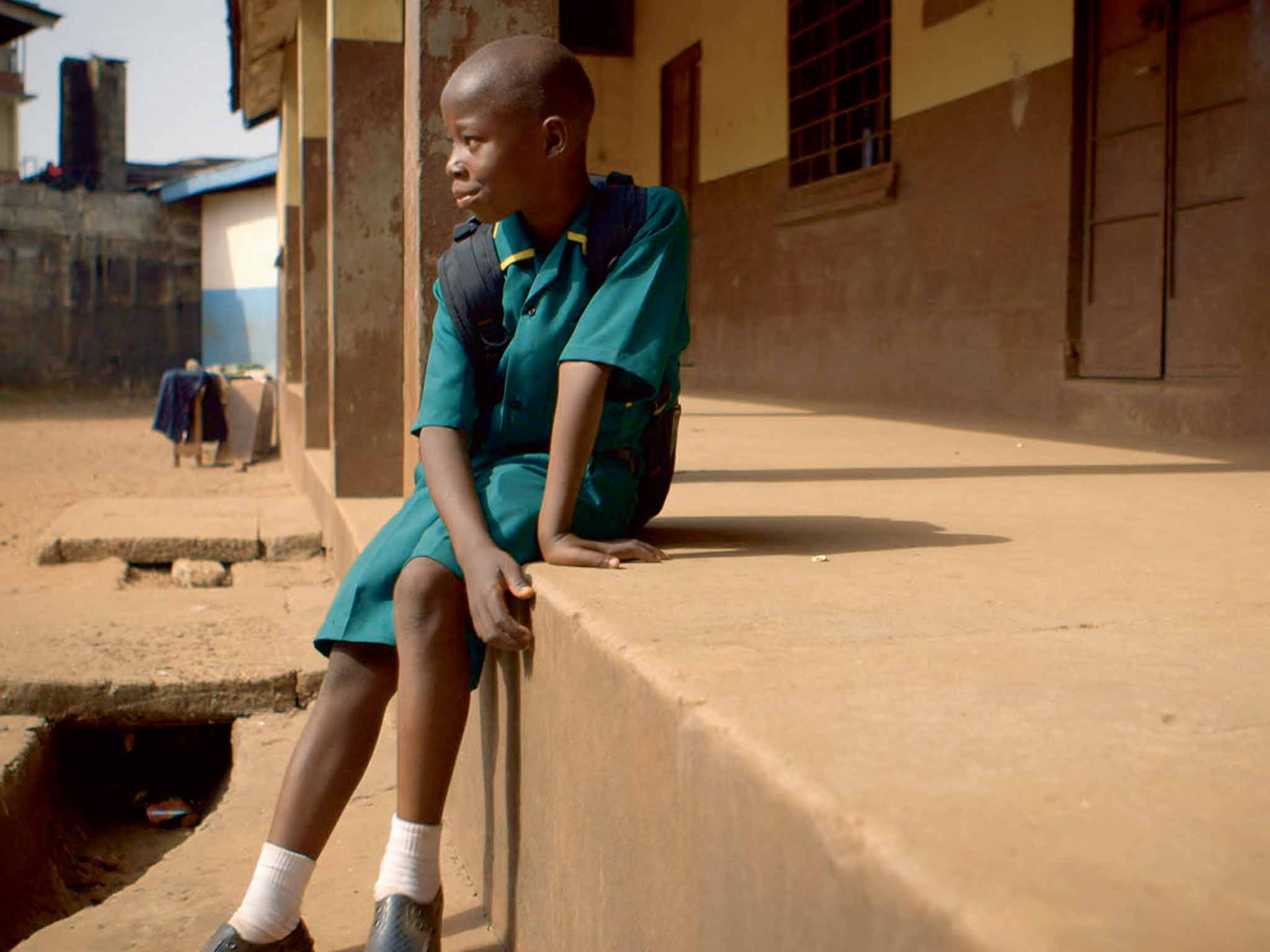The Children who Beat Ebola, Channel 4 - TV review: It was tough to watch children being exposed to such trauma and grief
We watched the boys return to school and be children again

Your support helps us to tell the story
From reproductive rights to climate change to Big Tech, The Independent is on the ground when the story is developing. Whether it's investigating the financials of Elon Musk's pro-Trump PAC or producing our latest documentary, 'The A Word', which shines a light on the American women fighting for reproductive rights, we know how important it is to parse out the facts from the messaging.
At such a critical moment in US history, we need reporters on the ground. Your donation allows us to keep sending journalists to speak to both sides of the story.
The Independent is trusted by Americans across the entire political spectrum. And unlike many other quality news outlets, we choose not to lock Americans out of our reporting and analysis with paywalls. We believe quality journalism should be available to everyone, paid for by those who can afford it.
Your support makes all the difference.There were some extraordinary moments in The Children who Beat Ebola, a testament to three things: the resilience of the children themselves; the value in telling serious stories through young eyes; and the value in taking the time to do it properly.
Filmmaker Ben Steele went to Sierra Leone in January, soon after the outbreak had peaked, and followed the children in two depleted families for several months. Freed from an isolation unit, Abu, 12, and his brother Abdul returned to their empty home, where they had watched their parents die. Hidden in a drawer they found a sealed box. They cut it open and pulled out enough money, secretly stashed by their mother, to keep them in school. “The money we found make my heart break,” Abu said. His brother pulled over a chair to comfort him and the boys cried for the first time.
Michael, also 12, gave us a tour of his father's pharmacy, where he, too, had died. His funeral was well attended but then identified as the cause of further infections, and therefore stigma for his children. “He used to take me everywhere he was going,” Michael said, before watching footage of his dad's funeral on a laptop. “This one is dead... this one is dead,.. this one his dead...”
It was tough to watch children being exposed to such trauma and grief, often without much support, but the film was all the more powerful for it. And Steele must be commended for his tremendous sensitivity. Now that Sierra Leone has been declared Ebola-free, there was also hope as we watched the boys return to school and be children again.
Join our commenting forum
Join thought-provoking conversations, follow other Independent readers and see their replies
Comments